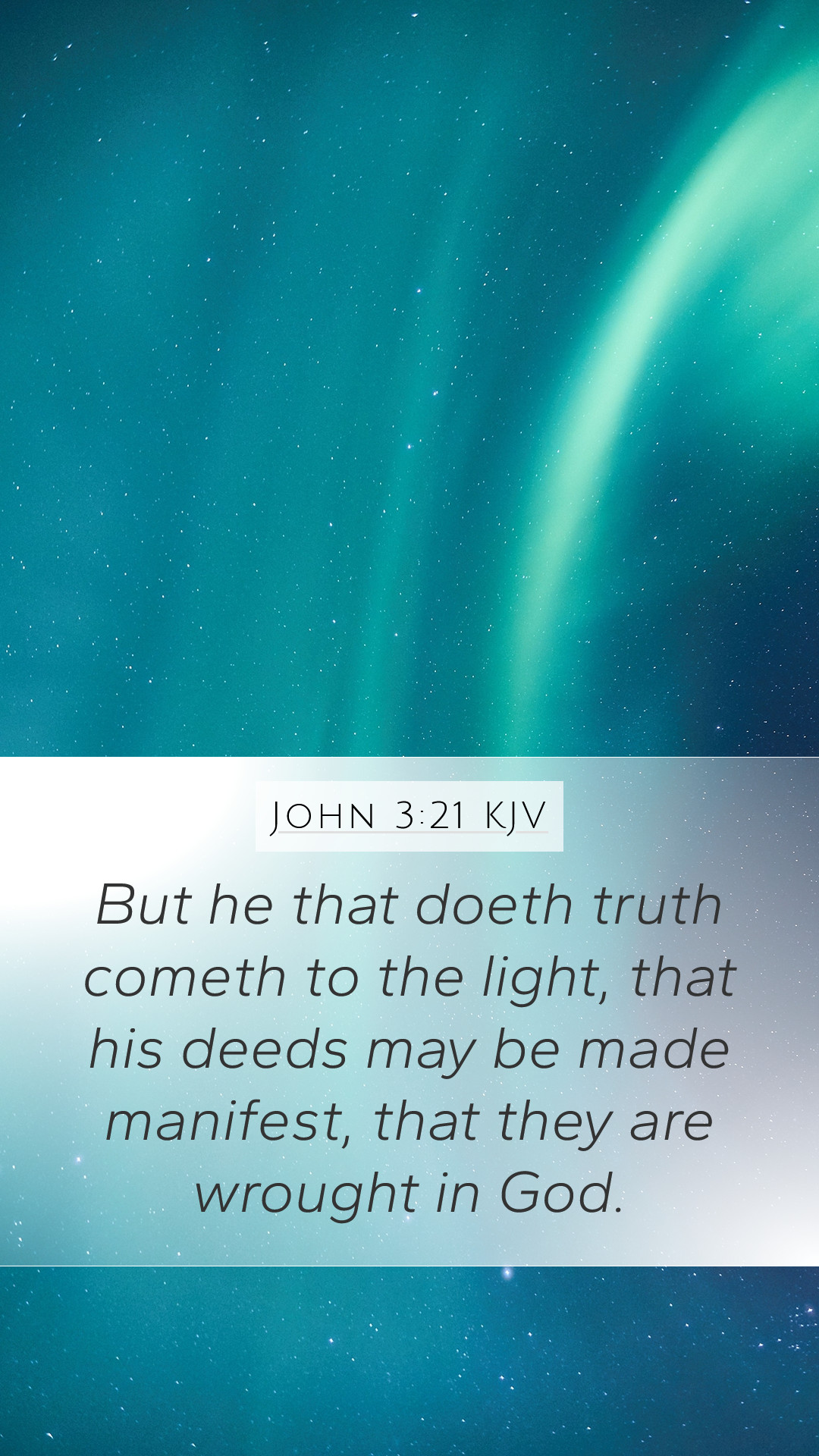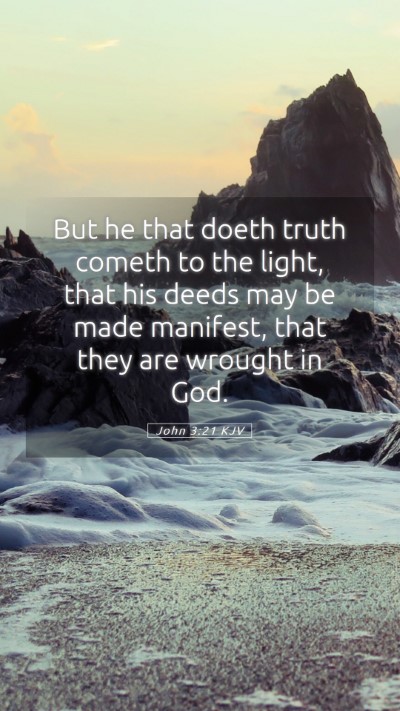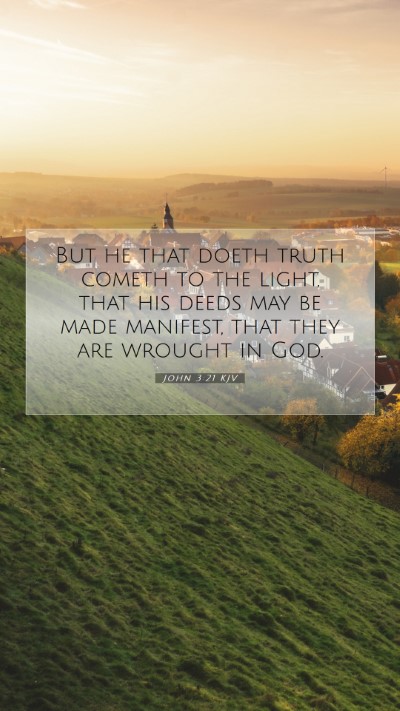Understanding John 3:21
John 3:21 states: "But he who does the truth comes to the light, that his deeds may be clearly seen, that they have been done in God." This verse illuminates key themes regarding truth, light, and righteousness as presented in the Gospel of John. Let's explore the meanings and interpretations from renowned public domain commentaries to gain a deeper understanding of this scripture.
Verse Breakdown
In this verse, the emphasis is placed on truth and light, symbolizing righteousness versus sinfulness. The individual who embraces the truth is motivated to come to the light, revealing their actions as those performed with divine assistance. Here we analyze each phrase:
- "He who does the truth": This phrase signifies individuals who act in accordance with God's will. Matthew Henry notes that such people do not shy away from their actions being scrutinized under the light of God.
- "Comes to the light": Adam Clarke emphasizes that the 'light' pertains to divine truth and enlightenment. Those who seek righteousness naturally progress towards this light.
- "That his deeds may be clearly seen": Albert Barnes highlights that the visibility of one’s deeds represents transparency in their actions—indicating that true followers of Christ desire their actions to align with God's will and thus seek validation through the light.
- "That they have been done in God": This final part underscores that the rightful deeds originate from divine inspiration and not from individual merit. This aligns with the interpretation of contextual righteousness.
Commentary Insights
This verse encapsulates the essence of a godly life as described by various commentators. Here is a synthesis of insights:
- Matthew Henry: He asserts that those committed to truth will display their actions openly, as they are backed by God's grace. This visibility serves both as evidence of their faith and as a testimony against those avoiding the light.
- Albert Barnes: Barnes elaborates on the dual nature of the truth where doing good deeds stems from a genuine faith. He elucidates the notion that embracing truth leads to divine acceptance and assurance of one's actions.
- Adam Clarke: Clarke's exposition highlights the transformative journey one takes when they align with divine light. He asserts that only through acknowledging and acting upon truth can one have assurance in their standing before God.
Thematic Reflections
This verse presents a stark contrast between righteousness and sin. In elaborating on the implications:
- Righteousness versus Wickedness: Pursuing truth is not merely about actions but also about a heart aligned with God. The visible distinction made between those who 'do the truth' and those who do not is crucial in understanding Biblical virtues.
- Embracing Exposure: The willingness to be seen in the light suggests that true believers are unashamed of their allegiance to God, contrasting with those whose deeds are darkened by sin and shame.
- Divine Authenticity: Actions ‘done in God’ imply that divine power is necessary not just for salvation but as a continual influence over a believer's life, reinforcing the importance of divine reliance in Christian living.
Modern Application
In today's context, John 3:21 encourages believers to live authentically. Understanding this scripture can significantly influence:
- Individual Conduct: It prompts believers to self-reflect on the motivations behind their actions and the need to align them with divine will.
- Community Engagement: As members of a faith community, individuals are called to support one another in embodying truth and light in their lives, fostering an environment of acceptance and growth.
- Witnessing to Others: This verse presents an opportunity for evangelism, inviting others to understand the power of truth and light in their own lives.
Additional Bible Cross References
This verse can be cross-referenced with the following scriptures to enhance understanding:
- John 1:5: "And the light shines in the darkness, and the darkness did not comprehend it."
- Matthew 5:14-16: "You are the light of the world..." illustrating the call for believers to reflect divine light.
- Ephesians 5:8-10: "For you were once darkness, but now you are light..." urging believers to walk in the light of the Lord.
- Philippians 2:15: "That you may become blameless and harmless, children of God without fault..." which echoes the call to live righteously and reflect God's nature.
Conclusion
In summary, John 3:21 encapsulates profound truths about spiritual authenticity, divine reliance, and a commitment to living righteously in a transparent manner. With insights drawn from various commentaries, the verse serves as a potent reminder of the transforming power of coming into the light. Through understanding this verse, we gain clarity into how to embody and express our faith while enriching our Bible study discussions and resources.


